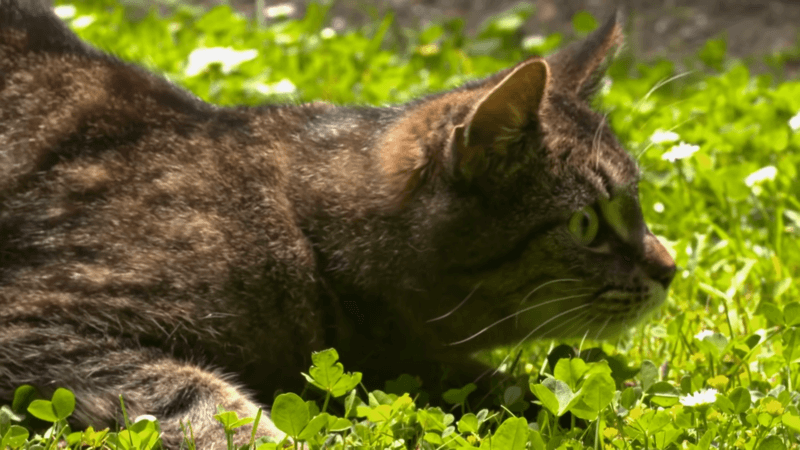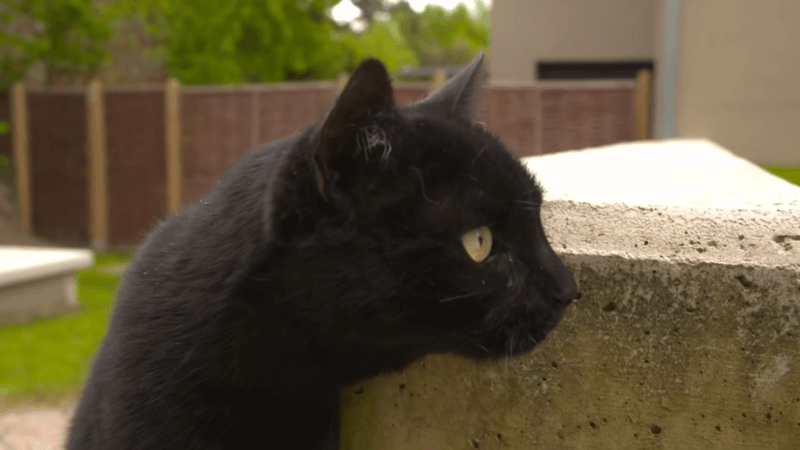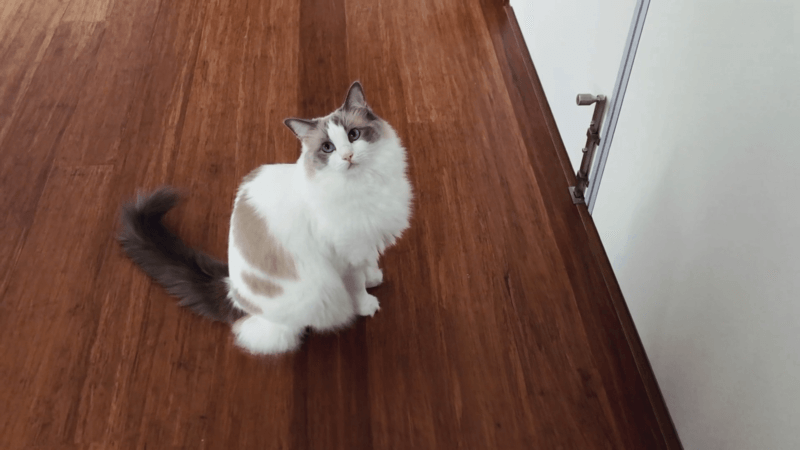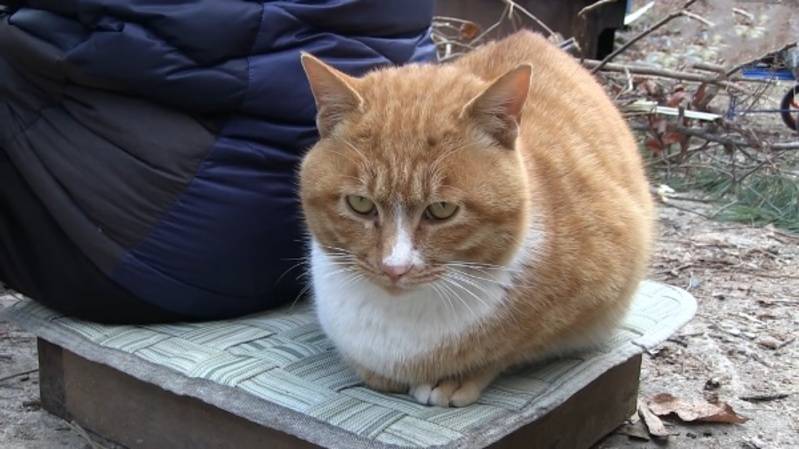No products in the cart.
Among pet owners facing the distressing challenge of Feline Infectious Peritonitis (FIP), a pressing question arises: can CBD oil help cats with fip? This question has captured the attention of concerned caregivers seeking potential solutions for their beloved feline companions. While limited scientific evidence exists, anecdotal reports suggest potential benefits. However, it is vital to approach CBD oil as a complementary option rather than a primary treatment for FIP.
In this blog, we will delve into the world of FIP, its impact on feline health, the potential benefits and side effects of CBD oil, and the importance of consulting with a veterinarian before considering it as part of FIP management
Can CBD Oil Help Cats With FIP?
There is limited scientific evidence to definitively conclude whether CBD oil can help cats with Feline Infectious Peritonitis (FIP). Some anecdotal reports suggest that CBD oil may provide relief from certain symptoms associated with FIP, such as pain and inflammation, but its efficacy and safety in treating FIP in cats have not been thoroughly studied. It’s essential to consult with a veterinarian who can provide guidance and monitor your cat’s health if you are considering using CBD oil as part of FIP management.

What Is FIP in Cats?
FIP stands for Feline Infectious Peritonitis, which is a viral disease caused by certain strains of feline coronavirus. FIP primarily affects domestic cats and some wild feline species. It is characterized by a complex set of symptoms, including fever, lethargy, weight loss, abdominal swelling, and a variety of organ-specific problems. FIP is a severe and often fatal disease that can manifest in two forms: effusive (wet) FIP and non-effusive (dry) FIP. It is a challenging disease to diagnose and treat, and there is currently no known cure for FIP.
The Impact of FIP on Cat Health
FIP has a profound and detrimental impact on a cat’s health. It is a progressive and fatal disease that can affect multiple organ systems in the body. Cats with FIP typically experience chronic inflammation, which can lead to organ damage and a range of symptoms. These symptoms can include fever, loss of appetite, weight loss, fluid accumulation in the abdomen or chest (in the wet form), and neurological signs (in the dry form). FIP is challenging to treat, and the prognosis is usually poor, with most affected cats eventually succumbing to the disease. Efforts to manage FIP typically focus on supportive care and alleviating symptoms to improve the cat’s quality of life for the time they have left.
Symptoms of FIP in Cats
Symptoms of FIP can vary depending on the form of the disease, which can be either wet (effusive) or dry (non-effusive).
- Common symptoms include:
Persistent Fever: Cats with FIP often have a prolonged fever that does not respond to antibiotics or other treatments.
Lethargy and Weakness: FIP can make cats extremely tired and weak, leading to reduced activity levels.
Loss of Appetite and Weight Loss: Many cats with FIP experience a decrease in appetite, leading to noticeable weight loss.
- Specific Symptoms for Wet (Effusive) FIP:
Abdominal Swelling: In the wet form of FIP, fluid accumulates in the abdominal or chest cavity, causing noticeable swelling.
Difficulty Breathing and Coughing: When fluid accumulates in the chest cavity, it can compress the lungs, leading to breathing difficulties and occasional coughing.
- Symptoms for Dry (Non-Effusive) FIP:
Neurological Symptoms: Cats with dry FIP may develop neurological signs, such as seizures, loss of coordination, and changes in behavior.
- Other Possible Symptoms:
Eye Problems: Some cats with FIP may develop eye issues, including inflammation or changes in eye color.
Jaundice: Yellowing of the skin and eyes (jaundice) can occur in some cases of FIP, indicating liver involvement.
Effectiveness of CBD Oil for FIP in Cats
The effectiveness of CBD oil for treating Feline Infectious Peritonitis (FIP) in cats is not well-established through scientific research. While some cat owners have reported anecdotal improvements in their cats’ condition when using CBD oil, there is a lack of comprehensive clinical studies to confirm its effectiveness as a treatment for FIP. FIP is a complex and often fatal disease, and treatment options remain limited. If considering CBD oil for FIP, it is essential to consult with a veterinarian experienced in both FIP and CBD use to discuss potential benefits and risks.

Side Effects of CBD Oil
CBD (cannabidiol) oil is generally considered safe for cats when administered appropriately, but it may still cause side effects in some cases. Common side effects of CBD oil in cats may include:
- Lethargy or Drowsiness: One of the most common side effects of CBD oil in cats is mild lethargy or drowsiness. Some cats may become more relaxed or sedated after taking CBD.
- Changes in Appetite: CBD oil can influence a cat’s appetite. Some cats may experience an increase in appetite (known as “the munchies”), while others may have a decreased appetite.
- Diarrhea or Digestive Upset: Digestive issues, including diarrhea or upset stomach, can occur in some cats when they start taking CBD oil. This side effect is usually temporary and mild.
- Dry Mouth or Increased Thirst: CBD can cause a temporary decrease in saliva production, leading to a sensation of dry mouth. As a result, some cats may drink more water to compensate for this.
- Changes in Behavior: CBD can influence a cat’s behavior. Some cats may become more sociable and relaxed, while others may become less active or more withdrawn. Behavior changes can vary from cat to cat.
- Allergic Reactions (Rare but Possible): While rare, allergic reactions to CBD oil can occur in some cats. Signs of an allergic reaction may include skin rash, itching, swelling, or difficulty breathing. If you suspect an allergic reaction, discontinue CBD use and seek veterinary care.
Potential Benefits of Using CBD
While the scientific research on CBD’s effects in cats is ongoing, some potential benefits that have been reported in cats and other animals include:
- Pain Management: CBD may have analgesic (pain-relieving) properties and could help alleviate discomfort associated with conditions like FIP.
- Anti-Inflammatory: CBD is known for its anti-inflammatory properties, which may help reduce inflammation and swelling.
- Anxiety and Stress Reduction: CBD may have calming effects and may help cats with anxiety or stress-related issues.
- Appetite Stimulation: Some cats with FIP may experience a decreased appetite, and CBD may help stimulate their appetite.
- Supportive Care: CBD may provide supportive care by improving the overall well-being and quality of life of cats with FIP.
Is CBD Oil for Cats With FIP a Good Choice?
The use of CBD oil for cats with Feline Infectious Peritonitis (FIP) is not typically considered a recommended or primary treatment option. FIP is a complex and often fatal disease. Treatment options for FIP primarily focus on supportive care and alleviating the symptoms to improve a cat’s quality of life.

Quality and Legality of CBD Oil for FIP-Affected Cats
The quality and legality of CBD oil for cats can vary depending on the product and the region in which you reside. Here are some important considerations:
- Quality of CBD Oil for FIP-Affected Cats: When considering CBD oil for cats with FIP, it’s essential to prioritize quality. Look for products specifically designed for pets, sourced from reputable manufacturers, and third-party tested to ensure they contain the right amount of CBD and are free from harmful substances. Think of it as selecting premium cat food; you want the best for your furry companion.
- Legality of CBD Oil for FIP-affected Cats: CBD oil’s legality for FIP-affected cats varies by location. In many areas, CBD products derived from hemp with minimal THC are legal for pets, but it’s crucial to research and understand local laws. Much like checking speed limits on different roads, knowing the legal landscape for CBD use in your region is a must.
- Consultation with Your Vet: Before starting CBD oil, consult your veterinarian. They are your cat’s healthcare expert and can provide guidance on whether CBD is suitable for your cat’s specific condition. Additionally, your vet may recommend trusted brands or products, akin to getting dining recommendations from a knowledgeable friend.
Traditional FIP Treatments in Cats
Traditional treatments for FIP typically focus on supportive care and managing symptoms to improve a cat’s comfort and quality of life. These may include:
- Reducing Inflammation: FIP causes a lot of inflammation in the body, leading to symptoms like fever and swelling. To help the cat feel better, they might get medications that calm down this inflammation.
- Encouraging Eating: Cats with FIP often lose their appetite, which isn’t good for their strength. So, vets use medications that make the cat more interested in food, ensuring they get the nutrition they need.
- Staying Hydrated: If the cat has fluid buildup in the belly or chest, which can make it hard for them to breathe, they might need fluids through an IV or under their skin. This keeps them hydrated and helps with their comfort.
- Proper Nutrition: Special diets or supplements might be recommended to give the cat all the nutrients they require. This helps support their immune system and overall health.
- Pain Relief: FIP can be painful, and that’s where pain-relieving medications come in. These make the cat more comfortable during their illness.
Conclusion
The question of whether CBD oil can help cats with Feline Infectious Peritonitis (FIP) has understandably arisen among pet owners seeking potential solutions for this challenging disease. While limited scientific evidence exists, anecdotal reports suggest potential benefits. However, it is vital to approach CBD oil as a complementary option rather than a primary treatment for FIP. Consulting with a veterinarian experienced in both FIP and CBD use is crucial to ensure the well-being of your cat and to make informed decisions about its use in managing FIP.
I am Nelson Cooper, I pursue my passion for writing and my belief is that cats love humans. I enjoy traveling and have a deep appreciation for the beauty of nature, as well as a soft spot for animals, particularly cats.



